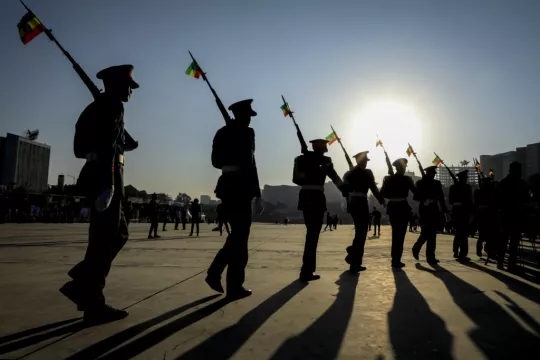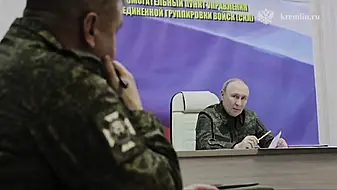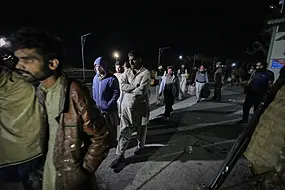The leader of Ethiopia’s embattled Tigray region has been invited to peace talks in South Africa this weekend as part of a pan-African effort to end one of the world’s most overlooked wars, according to a letter seen by reporters.
If Debretsion Gebremichael attends the proposed talks between the Tigray and Ethiopian sides, it will be the highest-level effort yet to end the two-year war that has killed thousands of people as a result of conflict and starvation.
The letter from the chair of the African Union Commission, seen by the Associated Press, says the African Union-convened talks would be “aimed at laying the foundation for a structured and sustained mediation” between the two sides toward a “durable resolution of the conflict”.
Ethiopia’s government has accepted the invitation, national security adviser Redwan Hussein said.
In a separate statement, the government called it “consistent with the Ethiopian government’s prior positions” that talks should be mediated by the AU and held without preconditions.
A diplomat in Addis Ababa said the African Union was still waiting for a response from the Tigray side. The spokesman for the Tigray forces, Getachew Reda, could not immediately be reached.

The diplomat also said representatives from the European Union, the United Nations and the regional Intergovernmental Authority on Development are expected to attend the talks as observers in support of the AU’s mediation team.
The AU letter says the talks would be facilitated by AU special envoy and former Nigerian president Olesegun Obasanjo, with the support of former Kenyan president Uhuru Kenyatta and former South African Deputy president Phumzile Mlambo-Ngcuka.
The diplomatic effort come more than a month after fighting in Tigray renewed following months of relative calm.
Forces from neighbouring Eritrea, allied with Ethiopia’s government, are again joining the fighting in what Tigray forces have described as a large-scale offensive.
The Tigray region has been largely cut off from the world since the war began in November 2020, with more than five million people without basic services including electricity, phone, internet and banking.
Medicines have run desperately low. On Thursday, the UN said trapped staff were finally able to rotate out of the region for the first time since the fighting renewed.
The fighting has spilled over into Ethiopia’s neighbouring regions of Amara and Afar as Tigray forces have tried to pressure the government, putting hundreds of thousands of other civilians at risk.
United Nations-based investigators have said all sides have committed abuses.







